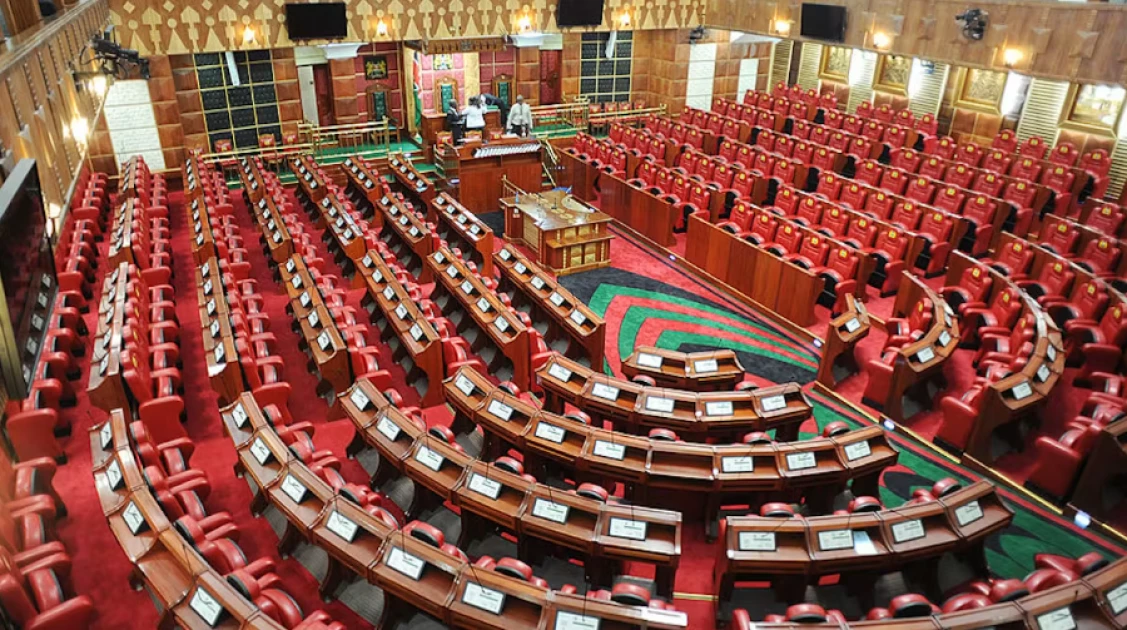How to bribe a Kenyan MP

File image of Kenya's Parliament. PHOTO | COURTESY

Audio By Carbonatix
These influencers are quite powerful; they make laws, and they can bulldoze anything they want.
Want a scandal to go away? Or a Deputy President impeached? Or a clause in a Bill that will "hurt" you and your organisation by making you pay taxes like everyone else, removed? These are your guys.
Even better, are you a Governor who has been sent packing by the MCAs, and you do not want to go home? They are your people. But be warned, they do not come cheap.
These influencers are usually found in the Kenyan Parliament. They are 349 human beings, many of questionable character, including 290 members directly elected from constituencies, 47 women representatives elected from each county, 12 nominated members representing special interests, and the Speaker, who serves as an ex officio member.
Ladies and gentlemen, welcome to the world of bribery in Kenyan politics.
Politics in Kenya has for aeons been associated with boisterous power, the kind that feels like you can summon elephants to your lawn.
It has also meant deep pockets from tenderpreneurship, fat salaries, senseless allowances and the elephant in the room: corruption.
Corruption has dogged the nation's political space since its inception and has worsened with every administration.
It has also been the rhetoric used as a magic charm in campaigns, as presidential contenders and legislative aspirants promise to tackle it, only to fall prey to its morbidity.
In President William Ruto's government, the fight against graft has been the hook of its political song, as many have sworn to go as far as apprehending those involved.
Those standing at the forefront of the war have, however, been accused of being the key conduits of handling graft-linked money.
Pay for leniency
Recently, President Ruto revealed how Senators benefit from an exploitation scheme in Parliament, as other leaders reveal how MPs are bribed to please those sitting on the political throne.
While speaking during an ODM-Kenya Kwanza Parliamentary Group Meeting in Karen on Monday, Dr. Ruto claimed that there is an extortion scheme used while summoning governors and other top government leaders.
Under the "soko huru" (free market) scheme, summoned persons pay a specific amount of money to allow committee members to be lenient on grilling the summoned individual or even deviate from publishing a credible report to the House.
"For example, the latest soko huru in the Senate. By virtue of the position I hold, I am a consumer of raw intelligence; I know what is going on. Where does somebody find Ksh.150 million. That is money that belongs to the county," he said.
President Ruto's claims have attracted harsh ridicule, as Senators have demanded that he be summoned to provide evidence.
Vote as I want
Varying claims from legislators have also revealed that bribery plays a key role in voting for laws in Parliament.
In 2024, at the peak of public upheaval that led to the anti-Finance Bill protests, Juja Member of Parliament (MP) George Koimburi claimed that legislators who voted in support of the Bill had been bribed.
MP Koimburi claimed that MPs were offered Ksh. 2 million to support the contentious law that triggered nationwide protests, culminating in agitated youth breaching Parliament.
National Assembly Speaker Moses Wetang'ula, however, said he had directed the MP, who was absent from the House, to avail himself before the House to elaborate on his allegations and the context of the letter.
Months later, in September, during the purging of former Deputy President Rigathi Gachagua, claims surfaced that MPs were being bribed to oust him.
Gachagua even claimed that MPs received hefty bribes at secret night meetings held in Nyahururu and Kitisuru at the house of a Cabinet Secretary, presumably to discuss how to remove him from office.
"Meetings have been held in Nyahururu, meetings were also held in Kitisuru in the house of a CS, we know what was being discussed. We know the amount of money that exchanged hands. We know these things," he told Citizen TV in an exclusive interview.
The claims later escalated to the Senate, as it was alleged that they received Ksh.10 million each to oust Gachagua.
Nominated Senator Tabitha Mutinda distanced herself from the claims after being cornered by her Murang’a County counterpart Joe Nyutu on whether she received the amount.
Senator Nyutu claimed that every member of the Senate, himself included, was offered Ksh.10 million to impeach Gachagua, which he refused.
Makueni Senator Dan Maanzo also claimed that "state agents" offered him Ksh.4 million to vote in favour Gachagua's impeachment.
He disclosed that there is an operative in Parliament to bribe legislators whenever the Executive seeks to advance its interests.
"People who come to the House to convince people. In fact, they said for Gachagua's removal, they want 100% vote of the Senate. Some of them are MPs, and others come from the hill (State House)," he told Citizen TV.
"This bribery in the House must stop. We are running the country through bribes."
Manyatta Member of Parliament Gitonga Mukunji has also chimed in on the conversation, claiming that President Ruto’s administration used financial incentives to pressure legislators into passing the Finance Bill 2024.
Mukunji, like his counterpart Maanzo, claimed that he also turned down Ksh.10 million to impeach Mr Gachagua.
He further alleged that both the National Assembly and the Senate were compromised during the impeachment proceedings against Gachagua, suggesting that bribes played a role in the outcome.
Based on the aforementioned claims, it seems Kenyan politicians can do your bidding without shame; they will do what you want and more. It just depends on how much money you have.



Leave a Comment